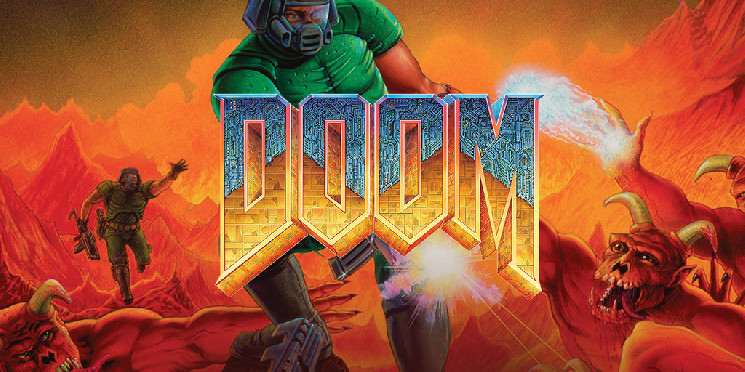Guillermo Rauch, CEO of software developer Vercel, has introduced a novel approach to CAPTCHA verification: Doom CAPTCHA. This innovative system replaces traditional CAPTCHA methods, such as identifying distorted text or images, with a mini-game based on the classic first-person shooter, Doom. Users are challenged to demonstrate their humanness by navigating a virtual environment and eliminating at least three demonic adversaries in the game’s challenging “nightmare” mode. This playful twist on security measures has garnered significant attention online, sparking discussions about its efficacy and entertainment value.
Doom CAPTCHA leverages the familiar gameplay of Doom, tasking users with controlling a space marine and utilizing arrow keys and the spacebar to move and fire weapons. The heightened difficulty of nightmare mode presents a unique challenge, requiring strategic maneuvering and quick reflexes to overcome the aggressive onslaught of demons. While the basic controls remain simple, mastering the demon-slaying aspect can prove surprisingly tricky, potentially leading to multiple attempts before successfully completing the verification. However, the inherent fun and nostalgic appeal of Doom contribute to a more engaging user experience compared to conventional CAPTCHAs.
The concept’s ingenuity lies in the unexpected juxtaposition of a beloved video game with a routine security measure. The challenge lies not in deciphering distorted characters or identifying obscured objects, but in demonstrating a level of dexterity and strategic thinking typically associated with gaming. This unconventional approach aims to differentiate human users from bots, which would presumably struggle with the dynamic and reactive nature of the Doom environment. While some users have quickly identified optimal strategies to swiftly complete the CAPTCHA, the developer has suggested potential future updates to increase the difficulty and maintain the system’s effectiveness against increasingly sophisticated bot technology.
The selection of Doom for this innovative CAPTCHA stems from the game’s rich history and widespread recognition within the tech community. Originally released in 1993, Doom quickly became a cultural phenomenon, captivating gamers with its fast-paced action and immersive world. The subsequent release of its source code in 1997 transformed Doom into a playground for developers, inspiring countless modifications, ports, and creative adaptations. This open-source nature has led to Doom appearing on a surprising array of platforms, from everyday appliances like lawnmowers and ATMs to more esoteric environments like the Bitcoin and Dogecoin blockchains, and even simulated biological systems. The game’s adaptability and enduring popularity make it a fitting choice for this novel application, further solidifying its status as a versatile and iconic piece of software.
The trend of running Doom on diverse devices has evolved into a playful challenge among engineers and tech enthusiasts, showcasing the game’s adaptability and the creativity of the community. The “Can it run Doom?” question has become a benchmark for exploring the capabilities of various platforms, pushing the boundaries of where the classic shooter can be experienced. This playful experimentation has led to Doom’s presence on everything from scientific instruments to emerging technologies like ChatGPT. The integration of Doom into a CAPTCHA system aligns perfectly with this spirit of innovation, transforming a mundane security measure into an entertaining and unexpected challenge.
Rauch’s Doom CAPTCHA exemplifies the convergence of gaming culture and technological innovation, demonstrating how seemingly disparate elements can be combined to create something both functional and engaging. The project’s viral spread on social media underscores the public’s fascination with this unconventional approach to security. While the long-term viability of Doom CAPTCHA as a robust security measure remains to be seen, its initial success highlights the potential for incorporating elements of gaming and interactive experiences into traditionally mundane online interactions. The project’s future development promises further exploration of this intriguing intersection, potentially leading to even more creative and challenging iterations of the demon-slaying CAPTCHA.


